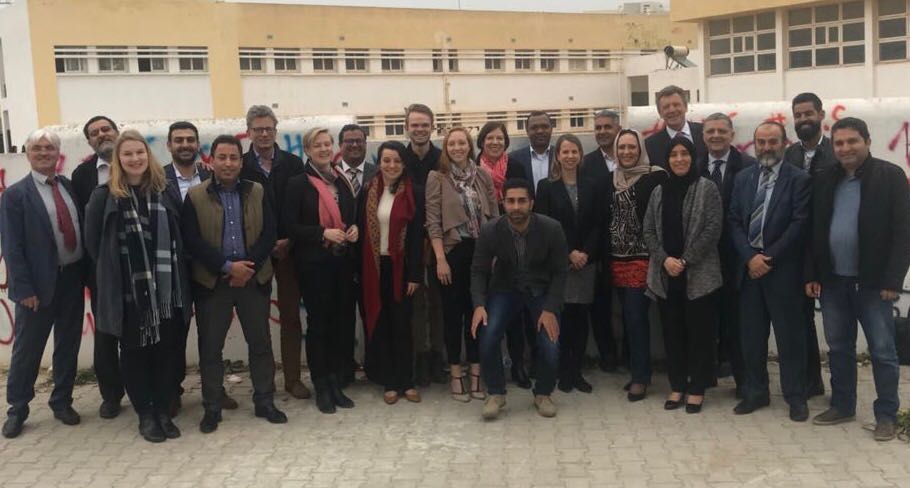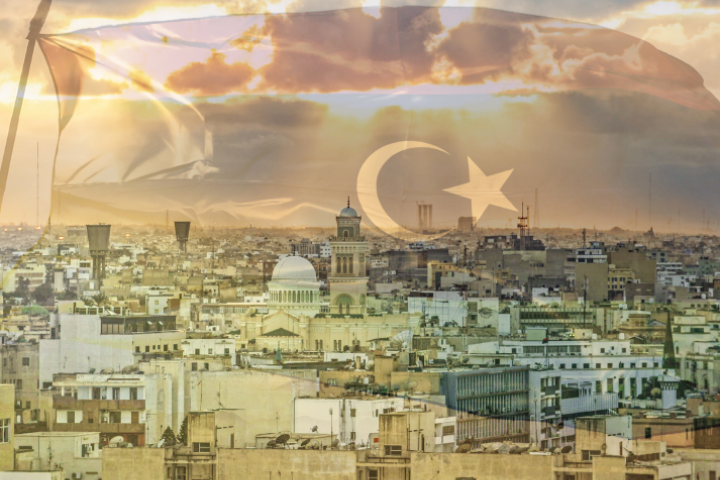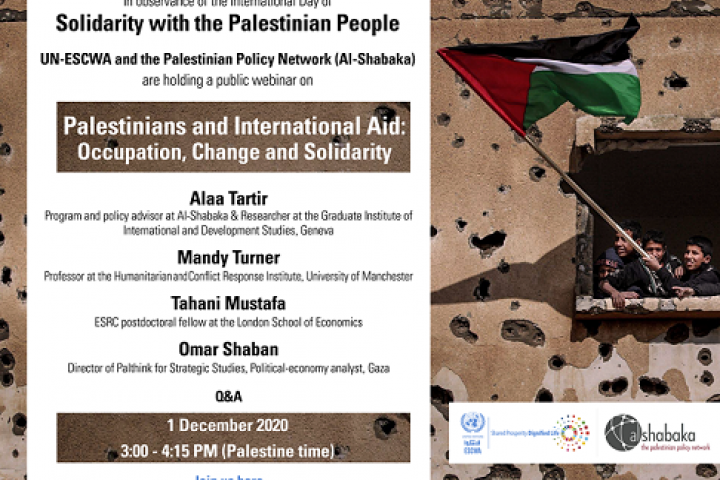Beirut, 16 March 2018 (Communication and Information Unit) – The United Nations Economic and Social Commission for Western Asia (ESCWA) recently launched the Libya Socioeconomic Dialogue Project, which will provide a platform for Libyans to engage in formulating a long-term vision for the socioeconomic development of their country.
“We have finalized the agreement with our partner, the German Agency for International Cooperation (GIZ), and it is now time to put what is on paper into action for the future of the State of Libya and its people,” said ESCWA Executive Secretary Mohamed Ali Alhakim.
“ESCWA will draw on its expertise in the field of socioeconomic development and its work in 18 countries of the Arab region to undertake this ambitious project, with support from key partners. The project will offer a neutral and de-politicized space for dialogue, reinforcing and complementing the United Nations system’s overall support to stabilization and sustainable development in Libya,” he added.
The Libya Project is a broad and inclusive technical consultation process, convened by ESCWA, in which experts of different backgrounds and specializations join to formulate a vision for the institutional development and socioeconomic future of Libya, and to discuss the strategies and governance, economic and social policies required to realize that vision.
The crisis in Libya has emerged in the context of the 2011 uprisings due to underlying structural causes, many of which remain key challenges for the country today. These root causes span across the political, social and economic spheres, and derive in part from historical legacies. Most old grievances dating back to the Gaddafi regime remain unresolved and new grievances have emerged in the past years. The lack of a unified vision for the new Libya has also led to the establishment of several competing notions of legitimacy, which are threatening to further undermine the State.
As a provider of international cooperation services for sustainable development, GIZ has been an integral partner to ESCWA in establishing this project, which is part of a broader programme being conducted by GIZ in Libya. This new collaboration fortifies an already strong ongoing partnership between ESCWA and GIZ, which are working together on multiple initiatives, such as the National Agenda for the Future of Syria project and the Regional Initiative for the Assessment of Climate Change Impacts on Water Resources and Socio-Economic Vulnerability in the Arab Region (RICCAR).
As part of the project’s launch, the ESCWA and GIZ teams recently met in Tunisia for a planning session, and conducted consultations with other project partners and stakeholders, including the United Nations Support Mission in Libya (UNSMIL), UNDP, UNICEF, the World Bank, and several Libyan opinion leaders, with the goal of soliciting insights on the project’s planned activities, and aligning common goals and interventions.
“With several levels of engagement - from municipalities to national - working towards stabilization and sustainable development in Libya, the partnership between GIZ and ESCWA leverages the strengths of each of our organizations,” said Regine Qualmann, Director of GIZ’s North Africa Division. “I look forward to continuing our ongoing collaboration,” she added.
The ESCWA and GIZ team also had the opportunity to discuss the project with Esam Garbaa, Director of Technical Cooperation at the Libyan Ministry of Planning.
“Now is the time, we need such a dialogue,” he observed, emphasizing the need to make the approach inclusive “by involving civil society, municipalities, academia and civil servants who would agree on a vision owned by all; one that represents the diverse parts of the country, is based on the realities on the ground, and is adapted to Libya’s multiple development needs”.
“The process of designing the Libya Socioeconomic Dialogue project has been widely consultative and research intensive. It has built on the comparative advantage and value added of ESCWA applied to the unique circumstances of Libya,” said Tarik Alami, Director of the ESCWA Emerging and Conflict-related Issues Division.
The design of the project, initiated in 2015, has gone through several stages as a result of consultations and developments inside Libya. ESCWA expects the project to last 36 months and to be rolled out through four stages: establishing a normative baseline on the current state of Libya’s institutions, economy and society; developing a common vision for the future of socioeconomic development in Libya; producing policy options for realizing that vision; and validating this vision with the Libyan people.
“This project comes at an important juncture for Libya, for which a strong and effective institutional framework is necessary to implement a Libyan-owned socioeconomic vision”, continued Younes Abouyoub, Chief of the Governance and State-building Section of ESCWA and leader of the project. He called on all development partners “to coordinate their interventions towards the common goal of serving Libya and its citizens”.
The project capitalizes on the convening authority of ESCWA and its ability to provide sustainable and ongoing support to long-term planning in its member States. It is expected to impact the local, national and regional levels, as neighboring countries such as Egypt and Tunisia have been affected by the situation in Libya, have seen a decline in trade and cross-border transactions and have become hosts to a significant number of Libyan refugees. The Libya project will also contribute to achieving the 2030 Agenda for Sustainable Development in the country and the Arab region, especially Goal 16, which calls for promoting peaceful and inclusive societies for sustainable development, providing access to justice for all, and building effective, accountable and inclusive institutions at all levels.
*****
For more information:
Nabil Abu-Dargham +961-70-99 31 44; email: dargham@un.org
Ms Rania Harb: +961-70-008879 harb1@un.org
Ms Mirna Mahfouz: +961-70-827372 mahfouz@un.org
Mr Haidar Fahs: +961-70-079021 haydar.fahs@un.org
Press release
16 Mar 2018
Beirut, Lebanon
Libya Socioeconomic Dialogue Project launched by ESCWA and partners in Tunis



